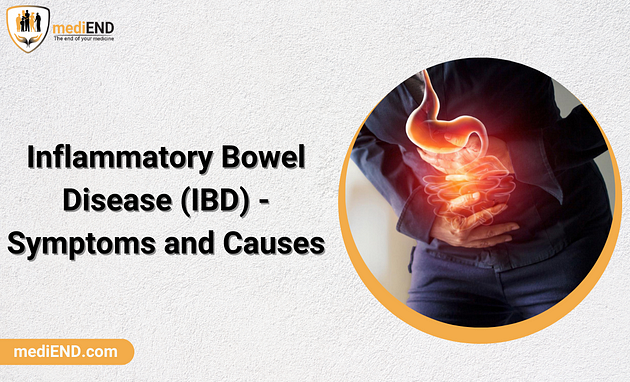Inflammatory Bowel Disease (IBD) - Symptoms and Causes
Introduction
Inflammatory bowel disease (IBD) is a chronic and often debilitating condition that affects millions of people worldwide. It is a complex group of diseases that can have a significant impact on both individuals and the healthcare system. In this article, we will define IBD and discuss its prevalence, symptoms, causes, diagnosis, and treatment options. Our aim is to inform readers about this condition and increase awareness and understanding of its symptoms and causes.
Understanding Inflammatory Bowel Disease (IBD)
Inflammatory bowel disease (IBD) is a chronic condition that affects the Digestive System. There are two main types of IBD: Crohn’s disease and ulcerative colitis. While both conditions share similar symptoms such as abdominal pain, diarrhea, and rectal bleeding, they differ in the location and extent of inflammation in the digestive tract. IBD is a complex disease and can often lead to complications if left untreated.
Due to the chronic nature of IBD, symptoms can last for weeks or even months at a time. This can have a significant impact on an individual’s quality of life and may require ongoing medical management. It is important to understand the symptoms of IBD and seek medical advice if you experience any of them.
In the next section, we will discuss the most common symptoms of IBD and the potential causes of this condition.
Common Symptoms of IBD
Inflammatory bowel disease (IBD) can cause a variety of symptoms that can significantly impact an individual’s quality of life. The most common symptoms of IBD include:
1. Abdominal pain: This can range from mild discomfort to severe cramping.
2. Diarrhea: This may be accompanied by urgency and frequent bowel movements.
3. Rectal bleeding: Blood in the stool is a common symptom of IBD, particularly ulcerative colitis.
However, the severity and frequency of these symptoms can vary greatly from person to person. In addition, individuals with IBD may also experience less common symptoms such as joint pain, skin problems, and fatigue.
Causes of IBD
The exact cause of inflammatory bowel disease (IBD) is not fully understood, but it is believed to be a combination of genetic and environmental factors. Individuals with a family history of IBD are at a higher risk of developing the disease. Environmental factors such as diet and lifestyle choices may also play a role in triggering or exacerbating the condition.
Diagnosis of IBD
The diagnosis of inflammatory bowel disease (IBD) can be a complex and challenging process. It requires a thorough evaluation of an individual’s medical history, physical exams, imaging tests, and lab tests. However, ruling out other conditions is crucial in accurately diagnosing IBD. This is because the symptoms of IBD can overlap with other digestive disorders, making it difficult to differentiate between them.
Treatment Options for IBD
The primary goals of treatment for IBD are to control symptoms and prevent complications. Treatment may involve a combination of medication, lifestyle changes, and in some cases, surgery.
Lifestyle Changes for Managing IBD
Individuals living with inflammatory bowel disease (IBD) can significantly improve their quality of life by making certain lifestyle changes. These changes can help manage symptoms and prevent flare-ups.
1. Diet and Nutrition:
A healthy and balanced diet is essential for managing IBD. It is recommended to avoid trigger foods that can worsen symptoms. A low-fiber diet may be beneficial for individuals with Crohn’s disease, while a high-fiber diet may be recommended for those with ulcerative colitis. It is also important to stay hydrated and talk to a dietitian for personalized nutrition advice.
2. Stress Management:
Stress can often trigger or worsen symptoms of IBD. Practicing stress management techniques such as yoga, meditation, or deep breathing can help manage stress levels. Regular exercise can also be effective in reducing stress and improving overall well-being.
3. Avoiding Trigger Factors:
Apart from diet and stress, there may be other trigger factors that can worsen symptoms of IBD. These may include smoking, certain medications, and alcohol. Identifying and avoiding these triggers can help manage symptoms more effectively.
In conclusion, it is essential for individuals with IBD to prioritize their mental health and seek support when needed. With ongoing research and advancements in treatment, there is hope for a better quality of life for those living with IBD.
For More Inforamation Visit Here: Inflammatory Bowel Disease (IBD)

Comments
Post a Comment